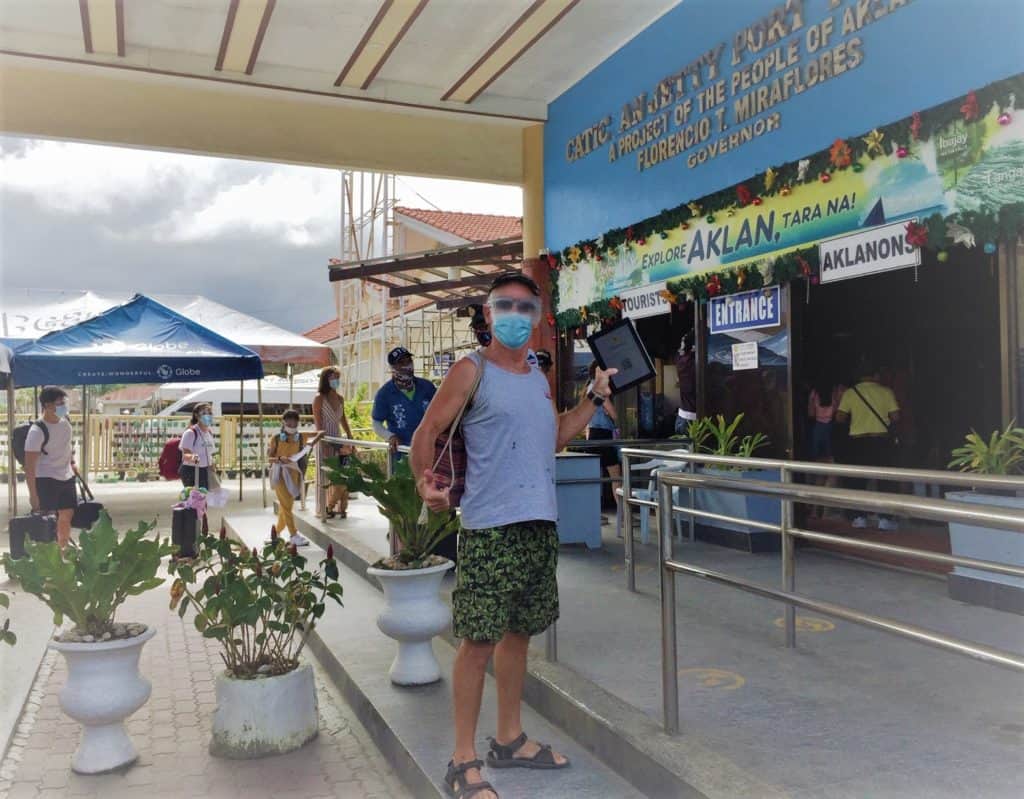Last Updated on October 25, 2024 by Ellen
Big news from the Philippines about domestic travel: the federal government nixed the requirement for COVID-19 nasal swab tests — unless the local government units (LGU) require it.
The hope is this will encourage more Filipinos to travel to tourist hot spots that have fizzled out in the last year. And it implies governments are running low on resources to help populations that are economically devastated.
Swab tests nixed
Initially, negative swab test results were required for places like Boracay Island. But the cost – around $60 – $80 in dollars – deferred people from travel. Some dishonest people used fraudulent negative results to get onto the island.
Then the government set up subsidized testing to give potential travelers a discounted incentive to travel. Hotels and restaurants and airlines offered steep discounts.
Prior to the pandemic, about half of the visitors to Boracay were Filipino. The island drew nearly 12,000 domestic tourists in January, and is on target to be about the same in February. That’s a small fraction of the pre-pandemic numbers.
Now, with foreign tourism still closed, the goal is to get more Filipinos to travel to the places that rely on tourism to survive.
Domestic tourism to Boracay has been open since October. We have been allowed to go since June, since we are residents of Malay Municipality in Aklan Province. Only people coming from outside Aklan have needed swab tests.

Masks, shields, social distancing, and other rules still apply, according to the official federal announcement. Since this change was announced on a Saturday, there is no official word yet about if the LGU requirements for Boracay will nix the swab tests.
However, last week the Malay local government requested permission to switch to saliva tests from nasal swab tests. It will be interesting to see what Malay will announce in the coming days.
No income
Like everywhere else on the planet, thousands of lives have been upended by lost income.
I know Filipinos who have delayed college, worked in rice fields for the first time, or sold whatever they could to generate any income.
I also know people who are now homeless or lost utilities, who fish to eat for the first time in their lives, or dig for mollusks to make soup and grow “survival” gardens.


We still help where and when we can. No matter how much we give, it’s never enough. A drop in the ocean of need.
Hope for better days ahead…
The bottom line is people need their work back. And in this part of the Philippines – like so many others – that work was in the tourism industry.
Requirements on domestic travel initially were to remain in place until the vaccination rollout, which has had major delays – but that’s another story for another time. (Still no official timeline, but Aklan Province is said to be at the front of the line – and that’s our province.)
Domestic tourism will not be enough to save everyone or every business that somehow has still managed to stay open. Eventually, they will need to figure out how to open to foreigners. But at least this is a start.
So here’s to hoping this new development of swab tests nixed will encourage more responsible domestic travel, with all health safety protocols in place, in order to provide some income to those who have none.
We recommend the Hangout Beach Resort
If you are planning a trip to visit Boracay Island, and you need a great budget-friendly place to stay on Malay’s mainland, we recommend the Hangout Beach Resort. It’s in Barangay Motag.
We have stayed at the Hangout – by choice – for nearly one year after our initial quarantine at the start of the pandemic.
The beach isn’t white, but it’s still awesome – and it’s authentic.


***We are an independent blog. We get nothing in return for recommendations or good reviews.***
Thanks for reading, “Swab tests nixed by Philippine feds, LGUs can still require.”
Earth Vagabonds: budget slow traveling in early retirement since 2015.
Tap the button to read about how we did it.


I hope they can get the vaccine distribution issues sorted sooner rather than later. Hopefully, Novavax’s trials will turn out positively, as that will add another one to the list. I would have figured on Sinovac being popular there, but with the warships you wrote about, maybe not.
I donated to Gavi to try to help buy more vaccines, but, like you said, it’s a small drop in a big ocean.
Until vaccinations are much more commonplace, I imagine it’s going to be hard to get tourism at more than a trickle.
What a noble act – to donate to Gavi!
You are likely right about the trickle…
Sinovac is only 50 percent effective, so it will be given to the general public – not health care workers or the elderly. Pfizer and BioNTech and AstroZeneca are sending vaccines, too. It’s all held up with indemnification.
Generally speaking, there is massive distrust on any vaccine here thanks to the Dengvaxia problem a few years ago.
It was given to children to protect against Dengue virus, but it caused infections in kids who were never exposed to any of the four strains. I think about 100 kids died, and it was tied to the vaccine.
Since then, immunization rates plummeted. Measles is even a problem now in some places.
Any vaccine might be a hard sell here. Then again, people need tourists to return so badly, they might *want the jab.